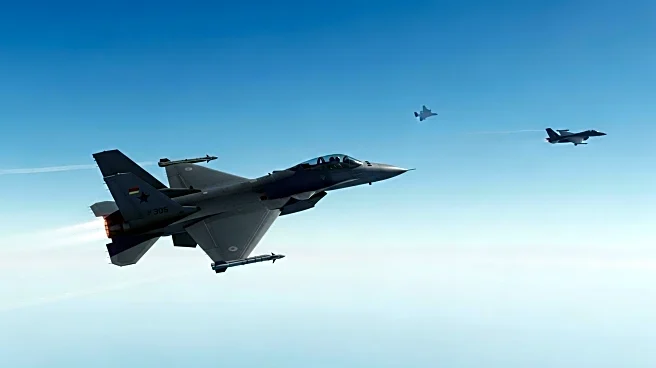What's Happening?
Two German Eurofighter jets were dispatched to intercept a Russian Il-20M reconnaissance plane over the Baltic Sea. The aircraft had turned off its transponders and ignored communication attempts, prompting Germany's air force to act. Estonia plans to convene an emergency UN Security Council meeting following Russian airspace violations. The incident is part of a broader pattern of Russian provocations, including violations of Polish and Romanian airspace. President Trump expressed willingness to defend EU countries against Russian aggression, although he had not been briefed on the specific incident.
Why It's Important?
The airspace violation by Russia is a significant escalation in regional tensions, potentially impacting NATO's security posture and international diplomatic relations. Estonia's call for a UN Security Council meeting indicates the seriousness of the situation and the need for a coordinated international response. The incident may influence U.S. foreign policy decisions, particularly regarding support for NATO allies. The ongoing provocations by Russia could lead to increased military readiness and strategic planning among European nations, affecting regional stability.
What's Next?
Estonia's emergency UN Security Council meeting may result in diplomatic actions or resolutions aimed at addressing Russian provocations. NATO members are likely to enhance surveillance and defense measures in response to continued airspace violations. The international community may engage in discussions to prevent further escalation and ensure regional security. President Trump's comments suggest potential U.S. involvement in supporting NATO allies, which could influence future diplomatic and military strategies.









